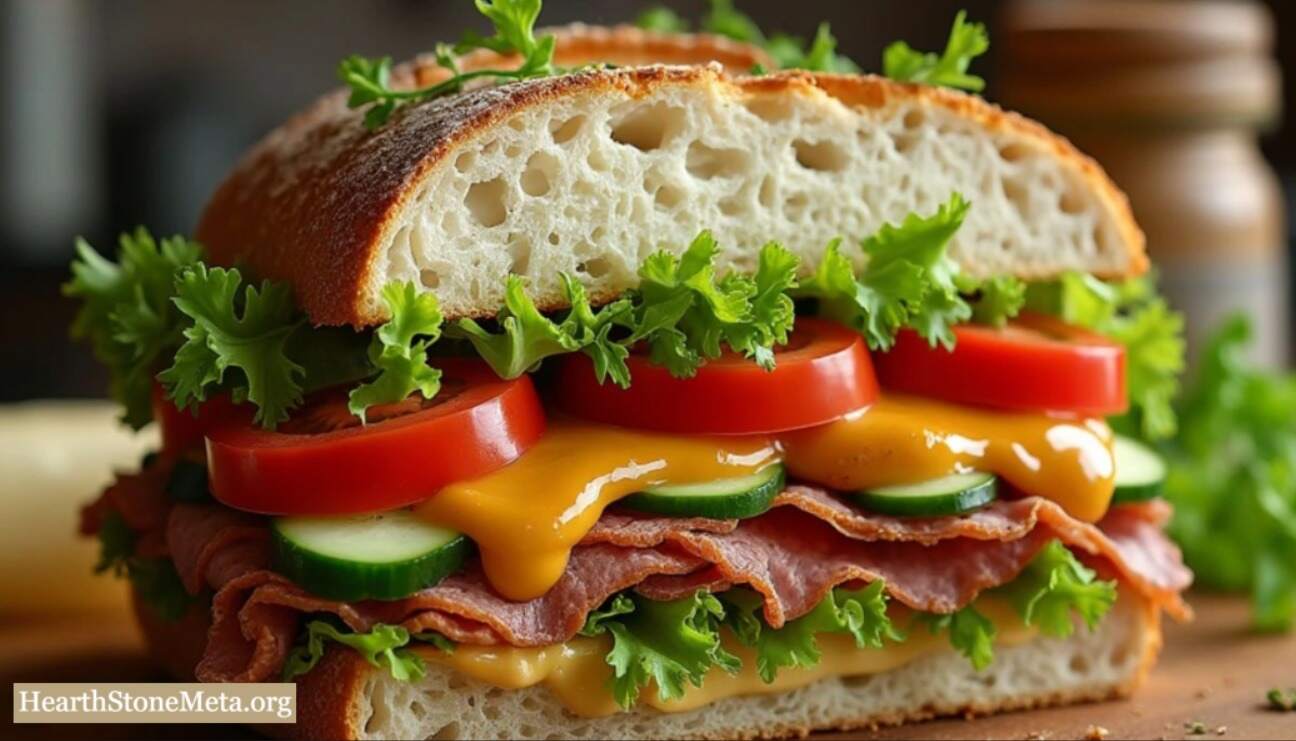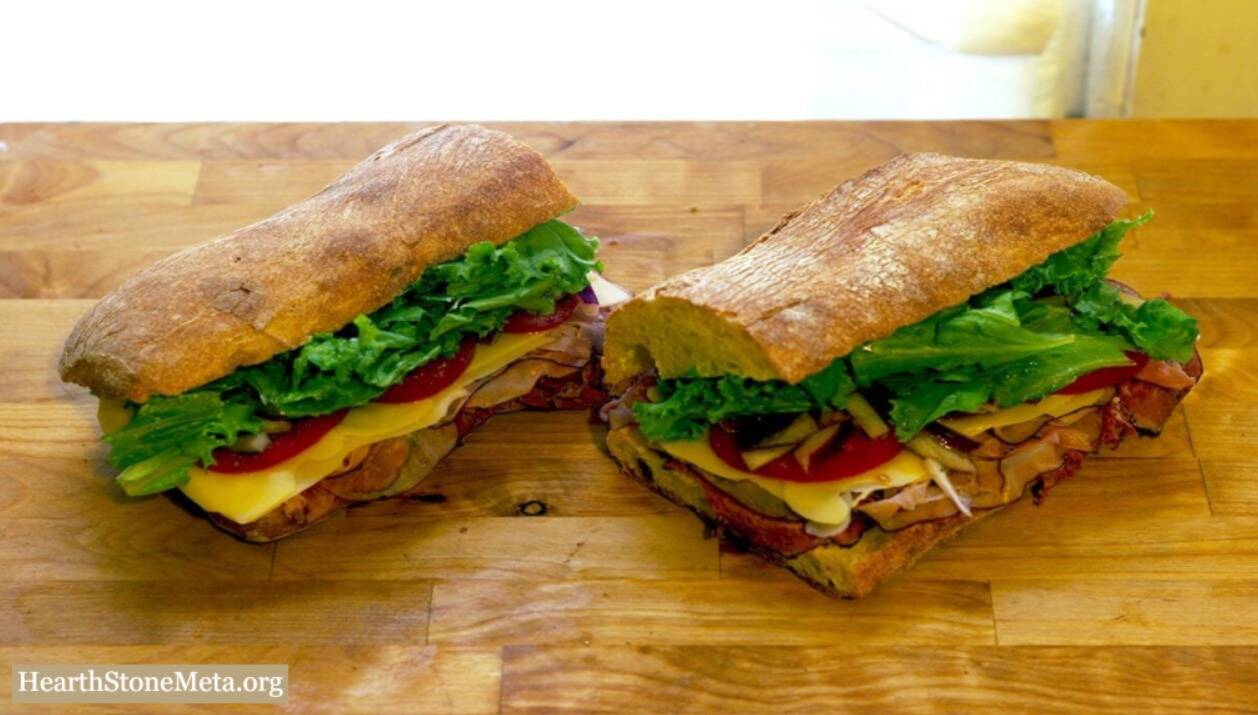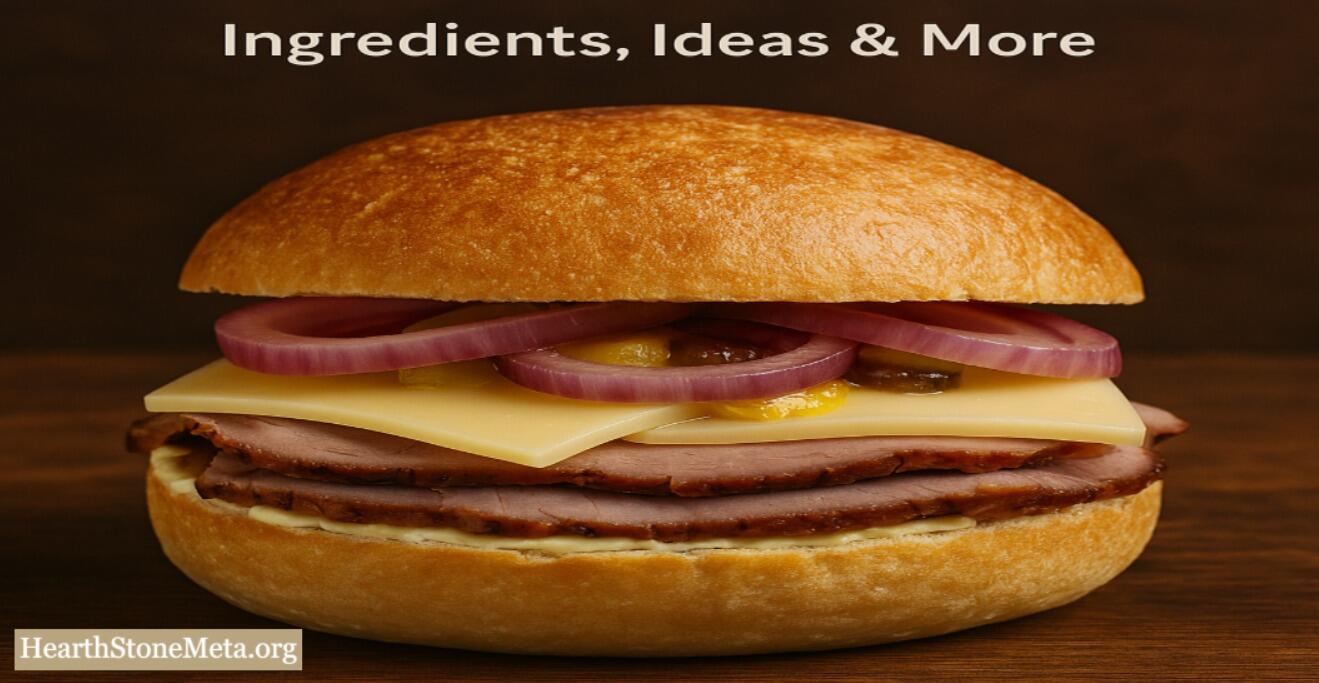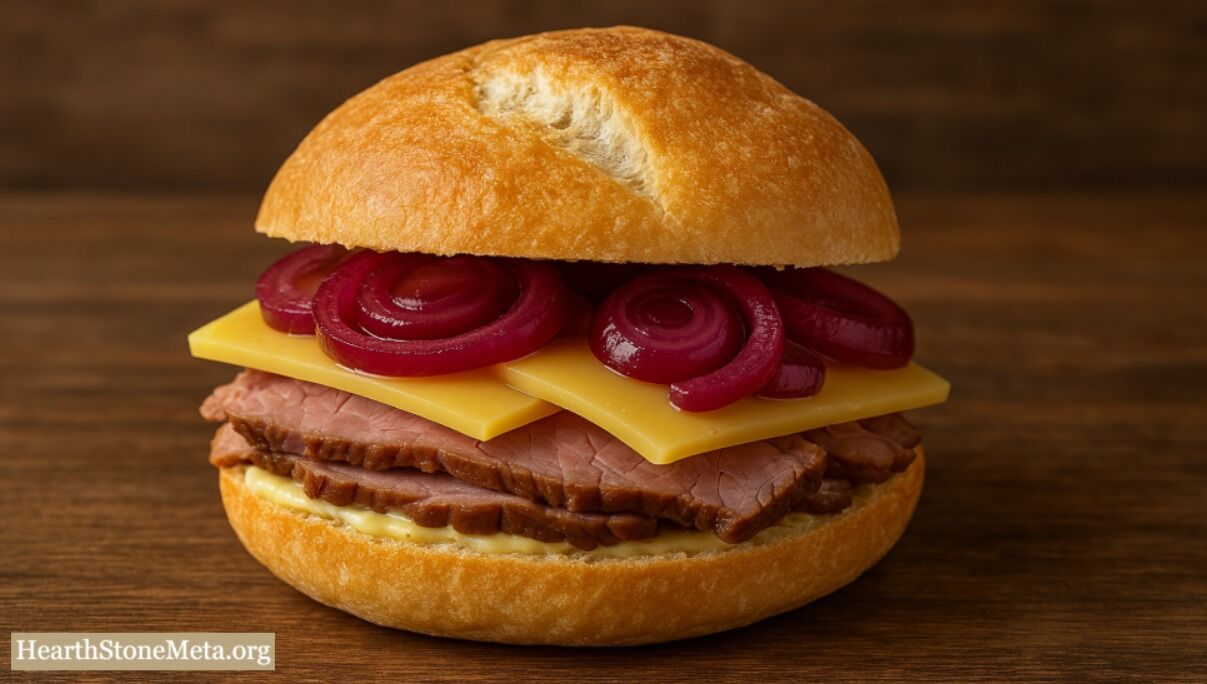Introduction
The term knob sandwich might catch you off guard. For some, it evokes British banter, for others, curiosity.
But at its core, a knob sandwich is a humble, delicious dish that revolves around a crusty bread roll—often called a “knob” in Northern England—filled with flavorful ingredients.
Whether you’re craving something savory, comforting, or customizable, the knob sandwich delivers all that and more in a compact, satisfying form.
In this article, we dive deep into the origins, variations, and growing popularity of the knob sandwich. From traditional roots to creative modern takes, this is one dish that deserves a spot on your radar—and your plate.
The Origin of the Knob Sandwich

The phrase knob sandwich is steeped in regional dialect and humor, but the food itself has more down-to-earth beginnings.
The “knob” refers to a small, round bread roll often found in the UK, especially in places like Lancashire or Yorkshire. These rolls have a crusty exterior and a soft interior, making them ideal for sandwiches.
Historically, workers would take these rolls with simple fillings—cold meats, cheese, or pickles—to work for lunch.
The combination of portability, affordability, and filling ingredients made it an ideal everyday meal. Over time, what started as a practical bite became a culinary canvas for comfort food lovers everywhere.
What Makes a Knob Sandwich Stand Out?
Despite its simplicity, the knob sandwich holds several advantages over more complex or processed sandwich options:
- Texture: The crusty bread offers a satisfying crunch, while the inside remains fluffy, creating a contrast that’s hard to beat.
- Size: Not too big, not too small—perfect for lunch or a substantial snack.
- Customizability: You can keep it classic or get as creative as you like with fillings.
- Cultural Charm: It’s tied to British culture in a light-hearted, nostalgic way.
Plus, the term itself often sparks laughter or curiosity, making it a memorable dish to serve or share.
How to Make a Classic Knob Sandwich

You don’t need to be a trained chef to enjoy a well-made knob sandwich. Here’s a basic method:
Ingredients:
- 1 knob roll (or substitute with a crusty round roll)
- A pat of butter or mayonnaise
- Cold cuts like roast beef, ham, or turkey
- Cheese (cheddar, Swiss, or whatever you prefer)
- Pickled onions or gherkins
- A dab of mustard or chutney for extra flavor
Instructions:
- Slice the knob roll horizontally.
- Lightly spread butter or your chosen condiment on each half.
- Add a generous layer of meat and cheese.
- Top with pickles, onions, or even sliced tomato if desired.
- Close the sandwich, give it a slight press, and enjoy.
It’s incredibly easy to personalize, which is why it continues to find fans in kitchens and cafés alike.
Creative Variations of the Knob Sandwich
One of the best things about a knob sandwich is that it welcomes creativity. Here are several popular and experimental ways to elevate this humble sandwich.
Vegetarian Knob Sandwich
Opt for roasted vegetables like bell peppers, zucchini, and aubergine with a layer of hummus or pesto. Add some feta or mozzarella for creaminess.
Breakfast Knob Sandwich
This version includes a fried egg, crispy bacon, and a slice of grilled tomato. Add a dash of brown sauce or hot sauce to wake up your taste buds.
Spicy Chicken Knob Sandwich
Use grilled or fried chicken strips tossed in hot sauce, topped with lettuce, spicy mayo, and pickled jalapeños. A great lunch option with a kick.
Cheese Lover’s Knob Sandwich
Layer several types of cheese—cheddar, provolone, and blue cheese—with a fig or onion jam. It’s a rich, savory option perfect for pairing with wine or cider.
Vegan Knob Sandwich
Grilled tofu or tempeh, avocado slices, tomato, and vegan mayo or tahini dressing combine for a plant-based powerhouse of a sandwich.x
The Knob Sandwich and British Slang
It’s worth acknowledging the playful use of the term knob sandwich in British slang, where it may also refer to a punch or be used as a cheeky insult.
This dual meaning has made the term somewhat of a cultural icon—funny in a pub context but also intriguing as an actual dish.
Some pubs and cafés lean into this with tongue-in-cheek menu listings, drawing curious customers in with the name and keeping them coming back with the flavor. The knob sandwich is a great example of British food culture not taking itself too seriously.
Pairing and Serving Suggestions
The knob sandwich is a standalone hero, but it pairs beautifully with other simple dishes and drinks:
- Soups: Tomato, pea and ham, or leek and potato soups are classic British choices that pair well with a crusty sandwich.
- Chips or Crisps: Serve with kettle-cooked chips or traditional crisps for texture contrast.
- Pickled Veggies: A side of pickled onions or slaw can add tang and freshness.
- Drinks: Try with English breakfast tea for a cozy lunch or pair with a pint of ale for a pub-style meal.
You can also slice a knob sandwich into quarters and serve as a finger food platter for gatherings.
Why the Knob Sandwich Deserves More Attention

In an age of over-the-top, heavily-stacked sandwiches, the knob sandwich offers a return to simplicity. It’s proof that you don’t need 20 ingredients to create something satisfying.
With its hearty bread, flavorful fillings, and cultural flair, the knob sandwich is enjoying a quiet renaissance among food lovers who appreciate both flavor and fun.
Whether you’re whipping one up at home or spotting it on a pub chalkboard, don’t pass up the chance to try one. It’s the kind of dish that sneaks up on you—simple at first glance, but surprisingly memorable.
Conclusion
The knob sandwich may have started as a humble lunchbox item, but it’s grown into a quirky, lovable dish that represents comfort, tradition, and a bit of cheeky charm.
It’s perfect for experimenting with ingredients, serves well for almost any meal of the day, and always delivers on satisfaction.
Next time you’re in the mood for something easy but tasty, reach for a knob roll, your favorite fillings, and build a sandwich that hits the spot no fuss, just flavor.
